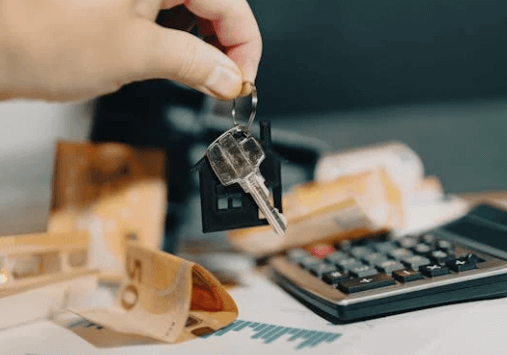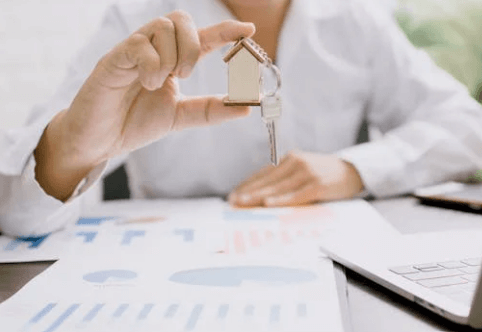Navigating the process of buying a home can be daunting. Suppose you want to obtain a mortgage with code violations in Florida. In that case, the challenge can seem even more forbidding. Florida’s vibrant real estate market can provide first-time homebuyers and seasoned investors with excellent opportunities. In this blog post, we’ll unravel the complexities of obtaining a mortgage with code violations in Florida, providing you with essential insights and guidance.
Whether you’re a first-time homebuyer or an experienced real estate investor, understanding the impact of these violations on your mortgage options is necessary. Join us on an insightful journey delving into the intricacies of this process. Gain the knowledge essential for making informed decisions along your path to homeownership in Florida.
Steve Daria and Joleigh have been immersed in Real Estate for numerous years, accumulating a wealth of experience. They’ve encountered diverse scenarios, each presenting unique challenges homeowners face. Their extensive tenure in the industry has equipped them with a deep understanding of the intricacies of real estate transactions, allowing them to provide invaluable guidance and solutions to their clients.
Key Points
- Code Violations May Impact Mortgage Approval: Lenders often view code violations as risks because they may reduce the property’s value. Some violations need to be resolved or addressed before the loan is approved.
- Understanding the Type of Violation is Crucial: Not all code violations affect your chances of getting a mortgage. Minor issues, like cosmetic repairs, are usually easier to work around than major structural problems or safety concerns.
- Lenders May Require Escrow for Repairs: In some cases, lenders might approve the loan on the condition that funds are set aside in an escrow account for repairs. This ensures the violations are fixed after the sale is complete.
- FHA and VA Loans Have Strict Standards: Properties eligible for FHA or VA loans must comply with strict safety and livability standards to ensure they meet the required criteria. Code violations could cause delays or even disqualify the home from being financed through these programs.
- You Might Need a Specialized Lender: Some banks or traditional mortgage companies may refuse to finance homes with code violations. Seek out lenders that specialize in properties needing repairs, as they may offer flexible terms or tailored solutions.
The Impact of Code Violations on a Florida Mortgage
A Mortgage with Code violations in Florida can significantly lower a property’s value and lead to costly fines, negatively affecting a mortgage agreement.
They may also delay or derail the mortgage approval process for potential buyers, making it crucial to address these issues promptly.

What Are Code Violations, and Why Do They Matter?
Code violations are infractions of a particular municipality’s housing or building code.
They range from minor issues like overgrown grass to critical structural concerns like a faulty foundation.
Addressing these concerns is essential for your safety, the well-being of your property, and the successful approval of your mortgage application.
The Relationship Between Code Violations and Property Values
When a property has unresolved code violations, its market value and saleability can be dramatically affected.
Lenders are generally wary of financing homes with serious issues that could reduce the property’s value or make reselling difficult.
Legal and Financial Ramifications for Buyers
If you purchase a home with unaddressed code violations, you could inherit the responsibility of resolving these issues, which may involve fines, repairs, or legal proceedings.
Consequently, it’s common for lenders to require buyers to rectify any violations as a condition of the mortgage.
Addressing Code Violations Before Applying for a Mortgage
Addressing code violations before applying for a mortgage can significantly streamline the home-buying process and prevent potential delays.
Understand the Nature and Severity of the Violations
The first step is to obtain a detailed report on the nature and severity of the code violations.
An inspector or attorney with experience in real estate law can help identify these issues and provide guidance on the necessary steps to rectify them.

Securing a Home Improvement Loan
A home improvement loan may be a prudent solution for significant violations that require substantial repair work.
These loans can often be rolled into the mortgage, providing the funds needed to bring the property up to code.
Negotiating With the Seller
In some cases, especially when the seller is eager to close the deal, you can negotiate for them to address the violations before the purchase is finalized.
Alternatively, you can seek a price reduction in the property to account for the necessary repairs.
Qualifying for a Mortgage with Code Violations
Securing a mortgage with code violations in Florida can be challenging, as lenders typically require issues to be resolved before closing. Here are some insights:
Working With a Knowledgeable Realtor and Lender
A realtor experienced with properties that have code violations can be an invaluable ally.
They can direct you to lenders more likely to work with borrowers in your situation or guide you toward specialized mortgage products designed for these scenarios.
Documenting the Remedy Plan
A comprehensive plan for addressing the violations must be documented and provided to your lender.
This plan should outline the steps you will take, including timelines and estimates for the cost of repairs.
How to Prove That Code Violations Have Been Remedied
Successfully addressing and rectifying code violations is a critical part of maintaining compliance and ensuring the safety of a development project.
This section outlines practical documenting strategies and demonstrates that all identified issues have been fully resolved.
The Role of Municipal Inspections
In most cases, your local municipality must inspect to verify that the violations have been corrected before issuing a compliance certificate.
Providing Evidence to Your Lender
Once you receive a compliance certificate, you must provide this evidence to your lender.
Before the mortgage can be finalized, it may be necessary to demonstrate that the repairs have been made to their satisfaction.
FAQs on Mortgages and Code Violations in Florida
Navigating the complexities of getting a mortgage with code violations in Florida can be challenging for property owners and potential buyers.
Here, we answer frequently asked questions to help you understand your rights and obligations.
Can I get a mortgage on a Florida property with code violations?
Yes, obtaining a mortgage on a property with code violations in Florida is possible.
However, the process will likely be more complex, and you may need to take specific steps to address the breaches before your application is approved.
Will code violations affect my interest rate or the type of mortgage I can get?
In some cases, code violations may affect the terms of your mortgage.
You may be subject to a higher interest rate or required to use a specific loan product tailored for properties needing repair.
Can an FHA 203(k) loan help me buy a home with code violations?
An FHA 203(k) or rehabilitation loan presents a compelling choice for those seeking funding for a property needing substantial repairs or upgrades.
It combines the cost of the home and the estimated renovation costs into a single loan, often offering a lower down payment than traditional mortgages.
What are the most common code violations in Florida homes?
Common code violations in Florida homes include issues with electrical wiring, plumbing, structural components, and permitting for additions or renovations.
Homes in coastal areas may also face specific building code requirements related to hurricanes and flooding.
Navigating the waters of securing a mortgage on a property with code violations in Florida may seem daunting at first glance. However, prospective homeowners can address these challenges with the proper knowledge and resources. Remember, while code violations can present an obstacle, they don’t have to be a deal-breaker. With careful planning and guidance, securing your dream home in Florida is still within reach, even in the face of these regulatory hurdles.

